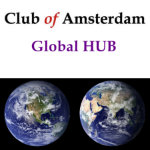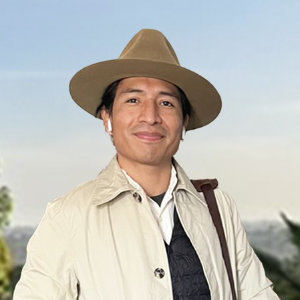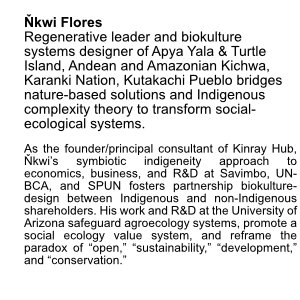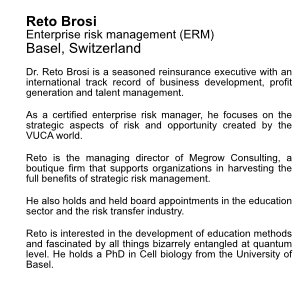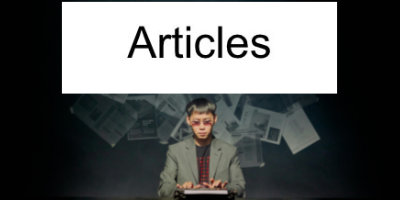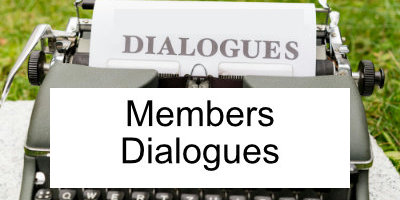
Marketplace Indigenous Wisdom
The Future Now Show
Books
Articles
Videos
Links
Voting
Members Dialogues
Live Events
Marketplaces
supported by ChatGPT
Please send your comments, ideas, contributions related to the Marketplace Indigenous Wisdom to
email ???
Global HUB Expert
Members:
Indigenous Wisdom refers to the deep knowledge, practices, and traditions that have been passed down through generations by Indigenous peoples. It encompasses a holistic understanding of the natural world, social relationships, spirituality, and sustainable living, which has been developed over millennia in close connection with specific environments and ecosystems.
the future of Indigenous Wisdom
Indigenous wisdom, rooted in ancient knowledge systems and cultural practices, is increasingly recognized as vital for addressing many of the challenges facing the world today. Here's a perspective on its future:
Environmental StewardshipTraditional Ecological Knowledge (TEK)
Indigenous communities have long practiced sustainable resource management, understanding ecosystems holistically. Their knowledge can guide modern approaches to climate change, biodiversity conservation, and land stewardship.
Policy Integration
More governments and organizations are acknowledging the value of TEK and incorporating it into environmental policies and initiatives.Cultural Revival and Preservation
Language Revitalization
Efforts to preserve and revive Indigenous languages are growing, as languages are carriers of unique worldviews and wisdom.
Intergenerational Learning
Elders are increasingly sharing oral traditions, stories, and skills with younger generations to keep their cultures alive.
Digital Platforms
Indigenous communities are leveraging technology to archive their knowledge, making it more accessible to global audiences.Health and Well-Being
Holistic Health Practices
Indigenous healing traditions, which emphasize balance among mind, body, spirit, and environment, are influencing integrative medicine and mental health practices.
Food Sovereignty
Indigenous agricultural practices, such as seed saving and permaculture, are gaining recognition for their potential to promote food security and sustainable agriculture.Education and Research
Decolonizing Education
There’s a growing movement to include Indigenous perspectives in curricula, fostering respect and understanding for their contributions.
Community-Led Research
Indigenous peoples are increasingly leading research projects, ensuring their knowledge is respected and appropriately represented.Leadership in Global Issues
Climate Justice
Indigenous leaders often stand at the forefront of climate justice movements, advocating for sustainable development and human rights.
Global Forums
Indigenous representatives are gaining more visibility and influence in international organizations like the UN, ensuring their voices are heard on global issues.Challenges and Opportunities
Recognition and Respect
Overcoming historical injustices and ensuring Indigenous knowledge is treated with respect, not as a resource to be exploited.
Collaboration
Building partnerships between Indigenous communities and external stakeholders that are equitable and mutually beneficial.
Youth Engagement
Empowering Indigenous youth to bridge traditional knowledge with modern innovation.Vision for the Future
Indigenous wisdom, when combined with scientific innovation, offers pathways to a more harmonious relationship with nature and each other. By amplifying and integrating these voices, humanity can work towards a sustainable and equitable future.

The Future Now Show
Redefining Indigenous Roles
with Nkwi Flores & Reto Brosi
Nkwi and Reto discuss the effects of industrialization on non-industrialized societies, particularly in developing countries. Nkwi argues that these societies have contributed little to global pollution and emissions but have provided resources for industrialization in other parts of the world. He highlights the challenges faced by these societies in achieving developmental goals, such as the lack of infrastructure for electric vehicles and technical service providers. Nkwi also expresses concerns about industrialized agriculture dismantling traditional farming practices and the environmental impact of using banned pesticides and fertilizers in non-industrialized countries to grow crops for export, which could lead to issues like hunger and poverty. – AI summary by Zoom
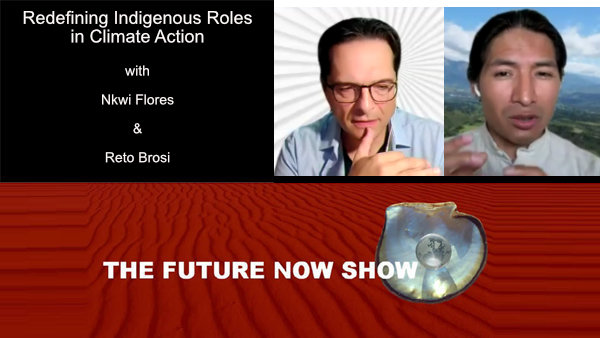
Digital Art credited to Nkwi Flores
Moderator
Credits
Nkwi Flores
Indigenous-led R&D | Trustee of Ancestral Territories |
Carbon Farming Planner | Food Systems Transformation |
Indigenous Ekonomy & Business
Brooklyn, New York, United StatesKinray Hub
Founder/Principal R&D Consultant
Indigenous-led Klimate Research & Resiliency Development
www.kinrayhub.orgNortheast SARE Fellow
Southern SARE (Sustainable Agriculture Research and Education) Program
www.southernsare.orgSEEKCommons Fellow
Open Environmental Data Project
www.openenvironmentaldata.orgAdjunct Lecturer
City University of New York-Herbert H. Lehman College
www.lehman.eduInstructor
New York Botanical Garden
www.nybg.org
ModeratorReto Brosi
Efficient and effective ERM
Basel, SwitzerlandMegrow Consulting GmbH
Managing Director
www.megrow.ch
Felix B Bopp
Producer, The Future Now Show
Founder & Publisher, Club of Amsterdam
clubofamsterdam.com
The Future Now Show
clubofamsterdam.com/the-future-now-show
top
Books
Here’s a curated list of books that explore Indigenous wisdom from cultures worldwide. These books provide insights into traditional knowledge, spirituality, and sustainable living practices across different regions:
Indigenous Wisdom from the Americas
Braiding Sweetgrass: Indigenous Wisdom, Scientific Knowledge, and the Teachings of Plants
by Robin Wall Kimmerer
Combines Native American knowledge with Western science to explore themes of reciprocity and environmental stewardship.
Sand Talk: How Indigenous Thinking Can Save the World
by Tyson Yunkaporta
Offers insights into Indigenous Australian philosophy but also draws global parallels.
The Heartbeat of Wounded Knee: Native America from 1890 to the Present
by David Treuer
A mix of history and cultural reflection, focusing on contemporary Native American life and wisdom.
The Earth Shall Weep: A History of Native America
by James Wilson
A historical perspective that emphasizes the resilience and knowledge of Native American cultures.Indigenous Wisdom from Australia and the Pacific
Dark Emu: Aboriginal Australia and the Birth of Agriculture
by Bruce Pascoe
Challenges stereotypes about Aboriginal Australians by revealing their sophisticated land management practices.
Voices of the First Day: Awakening in the Aboriginal Dreamtime
by Robert Lawlor
Explores the spiritual and ecological wisdom of Aboriginal Australians.
Mutual Accompaniment and the Creation of the Commons
by Mary Watkins
Focuses on Indigenous wisdom from the Pacific islands and its relevance to community building.Indigenous Wisdom from Africa
The Healing Wisdom of Africa
by Malidoma Patrice Somé
A profound journey into African spirituality, rituals, and the importance of community.
African Holistic Health
by Llaila O. Afrika
Merges Indigenous African healing practices with modern health paradigms.Indigenous Wisdom from Asia
The Wayfinders: Why Ancient Wisdom Matters in the Modern World
by Wade Davis
Explores the knowledge systems of Indigenous peoples in places like Polynesia, the Arctic, and Borneo.
Grassroots Asian Theology: Thinking the Faith from the Ground Up
by Simon Chan
Delves into the intersection of Indigenous practices and spirituality in Asia.Indigenous Wisdom from the Arctic and Northern Regions
The Right to Be Cold
by Sheila Watt-Cloutier
Explores climate change from the perspective of Inuit traditions and values.Global Indigenous Perspectives
Original Instructions: Indigenous Teachings for a Sustainable Future
edited by Melissa K. Nelson
Contributions from Indigenous leaders across the globe about ecological balance and sustainability.
Wisdomkeepers: Meetings with Native American Spiritual Elders
by Steve Wall and Harvey Arden
Features interviews with Indigenous elders from around the world.
An Indigenous Peoples' History of the United States
by Roxanne Dunbar-Ortiz
Examines U.S. history from the perspective of Indigenous peoples, offering lessons of resilience and adaptation.
Ceremony
by Leslie Marmon Silko
Blends storytelling with Indigenous spiritual insights, offering a global resonance.
These following books offer diverse perspectives and teachings that are deeply rooted in Indigenous cultures worldwide. Here are some highly regarded books that explore Indigenous wisdom, philosophy, and teachings:General Indigenous Wisdom
The Wisdom of the Native Americans
edited by Kent Nerburn
A compilation of Native American reflections on spirituality, nature, and community.Regional Focus
As Long as Grass Grows: The Indigenous Fight for Environmental Justice, from Colonization to Standing Rock
by Dina Gilio-Whitaker
Focuses on Indigenous environmental activism in the United States.
The Land is Not Empty: Following Jesus in Dismantling the Doctrine of Discovery
by Sarah Augustine
Examines the historical and spiritual implications of colonization and land ethics.Storytelling and Mythology
The Way of the Human Being
by Calvin Luther Martin
A mix of personal narrative, anthropology, and Indigenous mythologies.
Keepers of the Earth: Native Stories and Environmental Activities for Children
by Michael J. Caduto and Joseph Bruchac
Indigenous stories with environmental lessons for younger audiences and educators.
The Sacred Hoop: Recovering the Feminine in American Indian Traditions
by Paula Gunn Allen
Explores Native American spiritual traditions with an emphasis on women's roles.
top
Articles
Phoebe Barnard
environmental futurist
A reflective perspective to rebrand NYCW
by Nkwi Flores
Indigenous-led R&D | BioKulture Designer | Food Systems Transformation | Biokulture Ekonomy | Trustee of Ancestral
Spirituality and Climate Change
Climate Change Success Story
Ecosophy: Nature’s Guide to a Better World
by Elisabet Sahtouris
top
VideosRedefining Indigenous Roles
with Nkwi Flores & Reto Brosi
Indigenous Values
with Peachie Dioquino-Valera
Feminine & Indigenous Wisdom with Ferananda Ibarra
with Ferananda Ibarra
the future of Economy and Consciousness - Ferananda Ibarra
Club of Amsterdam
top
Links
Indigenous institutes and organizations around the world play a vital role in preserving and promoting Indigenous cultures, knowledge systems, rights, and sovereignty. Below is an overview of some key organizations and institutes globally:
Global OrganizationsWorld Indigenous Peoples Conference on Education (WIPCE)
A global forum for discussing Indigenous education and knowledge-sharing.
Hosts conferences every three years to bring together educators and leaders from around the world.
United Nations Permanent Forum on Indigenous Issues (UNPFII)
A high-level advisory body to the UN focused on Indigenous peoples' rights and issues globally.
Topics include human rights, education, health, culture, and the environment.
International Work Group for Indigenous Affairs (IWGIA)
A global organization supporting Indigenous peoples' rights and documenting their situations worldwide.
Cultural Survival
Works to advocate for Indigenous peoples' rights and supports their self-determination, cultures, and political resilience.Regional and National Institutes
North AmericaNational Congress of American Indians (NCAI)
United States
Represents tribal governments and promotes their sovereignty and rights.
Assembly of First Nations (AFN)
Canada
Advocates for First Nations communities, focusing on policy and self-determination.
American Indian College Fund
Provides scholarships and supports Tribal Colleges and Universities in the U.S.
Indigenous Leadership Development Institute Inc.
Canada
Promotes leadership and capacity-building among Indigenous communities.Latin America
Coordinadora Andina de Organizaciones Indígenas (CAOI)
Represents Indigenous organizations from the Andes region, focusing on rights and cultural preservation.
Confederación de Nacionalidades Indígenas del Ecuador (CONAIE)
Advocates for Ecuadorian Indigenous peoples' political and cultural rights.Australia and the Pacific
National Congress of Australia's First Peoples
A national Indigenous representative body advocating for policy and reform.
First Nations Australia Institute
Promotes research, leadership, and policy innovation in Indigenous communities.
Pacific Indigenous Peoples Network
A regional network that fosters collaboration and advocacy for Indigenous rights in the Pacific.Africa
Indigenous Peoples of Africa Co-ordinating Committee (IPACC)
Works with Indigenous communities across Africa to advocate for their rights and cultural heritage.
San Council
Southern Africa
Represents San peoples and supports their rights and traditional knowledge.Asia
Asia Indigenous Peoples Pact (AIPP)
A regional alliance working on advocacy, capacity-building, and sustainable development for Indigenous peoples.
Cordillera Peoples Alliance
Philippines
Focuses on Indigenous peoples' rights in the Cordillera region.Academic and Research Institutes
First Nations University of Canada
Focuses on Indigenous higher education, research, and cultural preservation.
Australian Institute of Aboriginal and Torres Strait Islander Studies (AIATSIS)
Collects, preserves, and promotes the cultures and histories of Indigenous Australians.
Te Kotahi Research Institute
New Zealand
A research institute that supports Maori development and knowledge systems.
Indigenous Peoples’ Knowledge Institute (IPKI)
Supports global research on Indigenous knowledge systems.
top
Voting
top
Members Dialogues
top

Live Events
Copyright © 2002-2025, Felix Bopp. All rights reserved.

